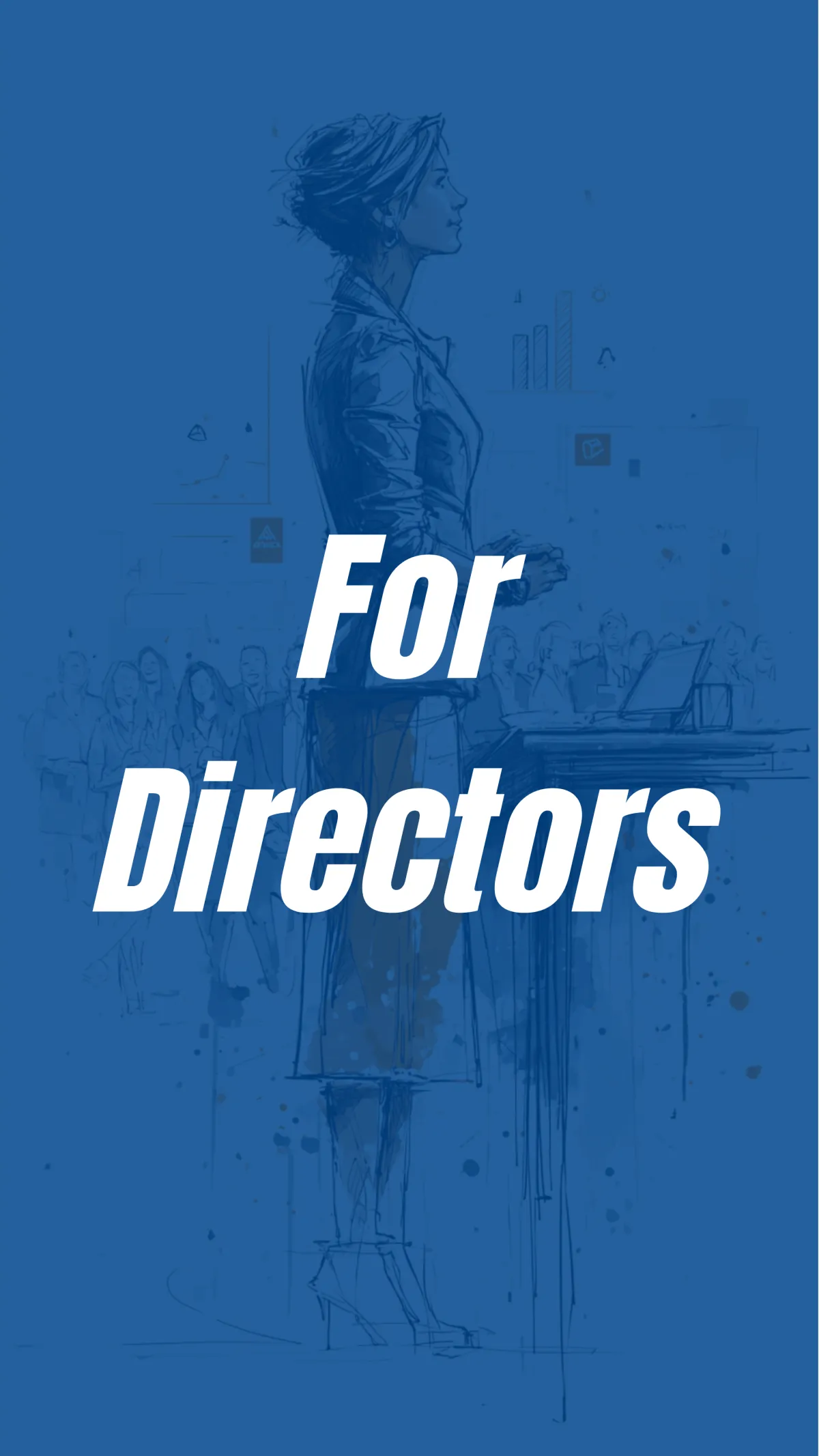
How Can Agents Manage Event-Related Stress?
Event planning is often considered one of the most stressful jobs. How can agents manage event-related stress? It's a common question, especially since event coordinators consistently rank among the 10 most stressful jobs. According to the World Scholarship Vault, event management is the third most stressful job for 2023. There are strategies to thrive in this high-pressure career while maintaining well-being and delivering fantastic events.
Let's explore some practical strategies for how agents can manage event-related stress and succeed in this dynamic industry. This is helpful in the planning industry. By implementing the strategies, you will create memorable experiences for clients and yourself.
Unlock your potential with AI-powered solutions tailored to your real estate needs. Save time, grow faster, and work smarter. Schedule your discovery session now at lesix.agency/discovery.
Embrace Proactive Planning
One of the best ways to manage event management stress is to stay organized. A study suggests that people who combine proactive coping with mindfulness can better handle daily stress. This means proactive planning while staying calm during stressful moments. The key to managing stress is proactive planning and clear communication within your team.
Start by creating detailed timelines and checklists for each event. Break down large tasks into smaller, more manageable steps. This helps you stay organized and gives you a sense of accomplishment. Make sure to create reasonable deadlines. Also, create a to-do list, which helps with the planning stress.
Consider using event management software to streamline processes. Tools like Cvent or Social Tables can help track everything from guest lists to vendor contracts. Using project management tools is a good way to track progress.

Master the Art of Delegation
As an event planner, it's easy to try to do everything yourself. However, learning to delegate effectively can significantly reduce your stress levels. You must feel supported by your team members. By implementing this method, your mental well-being will thank you.
If you find delegation challenging, try applying the 70% rule. This rule suggests that if someone can do a task at least 70% as well as you can, delegate it. This allows you to focus on tasks that require your expertise while empowering your planning team.
Delegation isn't just assigning tasks; it's trusting your team and providing resources and support. When delegating, be sure to set clear boundaries.
Prioritize Self-Care
In event planning, it's easy to neglect self-care. However, taking care of yourself is crucial for managing stress and preventing burnout. Taking short lunch breaks throughout the day is important.
Exercise Regularly
Scientific research indicates exercise improves self-esteem, sleep quality, and energy levels while reducing stress. The Department of Health and Human Services' Physical Activity Guidelines for Americans recommends 150 minutes of moderate aerobic activity or 75 minutes of vigorous activity weekly. Having a gym membership can help.
Even a quick walk can help. Research shows that walking can boost creativity, potentially helping you solve event-related problems while reducing stress. It will also give you a clear mind. You should consider your mental health when under pressure.
Stay Hydrated
Staying hydrated can play a significant role in managing stress. According to a report by WebMD, even slight dehydration can increase cortisol levels, a key stress hormone. Keep a water bottle handy and set reminders to drink regularly throughout the day. This will help prevent burnout.
Practice Mindfulness
Incorporating mindfulness techniques into your daily routine can help you stay calm under pressure. Consider trying meditation, deep breathing exercises, or even mindful walking. These practices can help you stay focused and reduce anxiety, especially during high-stress periods leading up to events.
Set Clear Boundaries
In the events sector, work can easily bleed into personal time. Setting clear boundaries is essential for managing stress and preventing burnout. Establish specific work hours and stick to them as much as possible. The clearer you are, the less stressful the event will be.
Communicate these boundaries clearly to clients and team members. While there will always be exceptions, especially as events draw near, having clear boundaries can help you maintain a healthier work-life balance. Manage client expectations to avoid extra stress.
Don't be afraid to say no to unreasonable requests or negotiate more realistic deadlines when necessary. Pushing yourself to the brink of burnout won't result in better events. It will only lead to increased stress and potential mistakes.
Leverage Technology
There are numerous tools available to help event planners streamline their work and reduce stress. From project management software to virtual event platforms, technology can be a game-changer. Be sure that your entire team knows how to use it.
Automate repeated tasks so you can focus on the big picture. Use analytics tools like Glew.io to gain insights into your event performance and make data-driven decisions. Be sure to keep an eye on ticket sales to measure progress.
The goal is to make your job easier, not more complicated. Choose tools that integrate well with your existing systems and provide clear benefits to your workflow. There are many different event management tools that you can look into. This helps reduce stress and also prevent burnout.
Develop a Support Network
Event planning can sometimes feel solitary, but it doesn't have to be. Developing a strong support network can provide both practical assistance and emotional support. Make sure you have people who are looking out for you when stress levels are high.
Connect with other event planners through professional associations or online communities. These connections can be invaluable for sharing tips, venting frustrations, and finding solutions to common challenges. They can help you to streamline processes.
Don't forget about your personal support network too. Friends and family can provide a much-needed perspective and help you decompress after stressful periods. Lean on team members when extra support required. Make sure your team responsibilities are clearly defined to reduce confusion.
Learn from Each Event
Every event is an opportunity to learn and improve, whether it's successful or faces challenges. After each event, take time to reflect on what went well and what could be improved. Use this information for future events.
Consider implementing a formal post-event review process. This can help you identify recurring issues and develop strategies to address them, potentially reducing stress in future events. Review the good and bad, then create contingency plans for the future. Use what you learn to help you avoid burnout.
Streamlining Communication for Reduced Stress
In the fast-paced events industry, efficient communication is vital for reducing stress and ensuring successful outcomes. Delays or misunderstandings can lead to increased pressure. So it is key to maintain your well-being. Improving the efficiency of communication helps reduce event planning stress.
Use a centralized communication platform to keep all discussions and updates in one place.
Establish clear channels for different types of communication, such as daily updates.
Set guidelines for response times to emails and messages to manage expectations.
Regular communication training for your planning team can also help improve their skills. Efficient communication not only reduces the likelihood of errors. It also builds trust and fosters a collaborative environment, which contributes to overall stress reduction.
Creating a Stress-Free Environment for Your Team
The environment in which your team operates can significantly impact their stress levels. By focusing on mental well-being, it can also help reduce stress levels. Consider investing in comfortable and ergonomic furniture.
Offer flexible working arrangements where possible.
Encourage regular breaks to stretch, walk, or simply disconnect from work.
Organize team-building activities that promote relaxation and camaraderie.
Recognizing and rewarding hard work is another effective way to boost morale and reduce stress. Celebrating successes, both big and small, reminds your team that their efforts are valued. Recognizing success will contribute to overall stress reduction.
Tools and Technologies That Reduce Stress
Leveraging the right tools can make a significant difference in how smoothly events are managed. There are many tools and technologies available that helps reduce stress. By adopting technologies, it can reduce the event planning stressful workload.

Each of these tools offers unique features to streamline processes and helps reduce stress for event planners. Using the right technology helps you avoid burnout. They help you maintain control over all aspects of event planning.
Building Resilience Through Training
Resilience is the ability to bounce back from difficult experiences. Building resilience is crucial for those in high-pressure careers. It can improve stress levels, especially in the event planning industry. You need to ensure your entire team is resilient. There are many ways to develop this vital trait:
Offer training programs on stress management techniques.
Provide workshops on effective communication and conflict resolution.
Encourage continuous learning and professional development.
These strategies can empower your team to handle stressful situations. With these strategies, you will feel supported during a high-pressure career. Developing resilience helps event professionals maintain their composure and helps reduce stress. In turn, the whole team can be successful.
Balancing Work and Personal Life
Achieving a healthy balance between work and personal life is essential for long-term well-being. Overworking can lead to burnout, reduced productivity, and increased stress levels. Create a healthy balance between your personal and work life. Take time to step away from your work, and enjoy the rewards.
Establish set work hours and stick to them.
Schedule regular breaks and vacations.
Engage in hobbies and activities outside of work.
Prioritizing personal well-being helps recharge and come back to work with renewed energy. Balancing your work and personal life will prevent burnout. In turn, you will have a greater sense of purpose and satisfaction.

FAQs about How can agents manage event-related stress?
How do you manage stressful events?
Managing stressful events involves a combination of preparation, self-care, and adaptability. Start by thorough planning and organization. Prioritize tasks, delegate when possible, and use technology to streamline processes. Practice stress-reduction techniques like deep breathing or mindfulness. Remember to take breaks, stay hydrated, and maintain a healthy diet. After the event, reflect on what went well and what could be improved for next time.
How do you handle stress as a customer service representative?
As a customer service representative in event planning, handling stress involves developing strong communication skills, practicing empathy, and maintaining emotional control. Take deep breaths when faced with difficult situations. Use positive self-talk to stay calm. Take short breaks when possible to reset. Develop a support network with colleagues. After difficult interactions, take time to decompress and reflect on how to handle similar situations in the future.
What are the 5 R's of stress management?
The 5 R's of stress management are: Rethink (change your perspective on stressful situations), Relax (practice relaxation techniques), Release (engage in physical activity), Reduce (minimize stressors where possible), and Reorganize (structure your time and tasks efficiently). For event planners, this might involve reframing challenges as opportunities, practicing mindfulness, exercising regularly, delegating tasks, and using project management tools to stay organized.
How to stop stressing over an event?
To stop stressing over an event, start by breaking down tasks into manageable chunks and creating a detailed timeline. Practice visualization techniques, imagining the event running smoothly. Focus on what you can control and accept that some factors are beyond your influence. Be sure you are getting enough sleep and maintaining a balanced diet. If anxiety persists, consider talking to a professional or using stress-management apps for additional support.
Conclusion
Managing event management stress is ongoing. However, with the right strategies, it's possible to thrive in this exciting field. The key to how agents can manage event-related stress lies in proactive planning, effective delegation, and prioritizing self-care. Also be sure to set clear boundaries and leverage technology. Make sure you build a support network, and continually learn from each experience.
By implementing these strategies, you can reduce your stress levels and enhance your performance. Your events and your stress levels will thank you for it. After all, event planning should be about creating memorable experiences for your clients and for yourself. Don't let the planning stress weigh you down.
Take a deep breath, apply these techniques, and watch as you transform from a stressed-out planner to a calm pro. Learn to avoid burnout by taking time for yourself.
Ready to take your real estate success to the next level? Schedule your discovery session today at lesix.agency/discovery. Stay ahead with tips and insights—subscribe to our newsletter at lesix.agency/newsletter.










